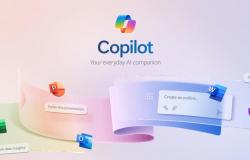Apple introduced OpeELM, a new family of large language models (LLMs) based on artificial intelligence (AI) that can run efficiently on personal devices such as laptops or smartphones.
OpeELM is available in four sizes. Its versions are capable of understanding and managing between 270 million and 3,000 million parameters or complex instructions. Each algorithm offers a trained version and an instruction-tuned version. The first is useful for producing coherent text through a predictive process, based on pre-training data. The second allows you to add personalized information so that the system responds with more relevant results to specific user requests.
OpenELM does not require a constant connection to cloud servers, unlike other LLMs. It can be run entirely on a portable device, suggesting faster response times and greater privacy guarantees.
Apple presents ReALM, the AI that promises to save Siri and surpass GPT-4
Apple’s new AI promises to understand the content of the user’s screen to operate in context and simplify instructions.
The models are trained with a public data set of 1.8 billion tokens. The information was extracted from platforms such as Reddit, Wikipedia and arXiv.org, an online archive of scientific articles.
Apple’s new family of AI models uses a layered scaling strategy. This means that the number of parameters in each layer of the model transformer is fitted independently, rather than using a uniform approach for the entire model. The company assures that with this technique it is possible to obtain more precise results and with less consumption of computational resources. “In its 1 billion parameter version, OpenELM shows a 2.36% improvement in accuracy compared to OLMo and requires two times less tokens pre-training.” OLMo is the latest LLM designed by the Allen Institute for AI.
Apple engineers tested the efficiency of OpenELM on a MacBook Pro with an M2 Max chip and 64GB of RAM, on a computer with an Intel Core i9-13900KF processor with 64GB of RAM and an NVIDIA RTX 4090 GPU. The results were satisfactory in terms of precision and reasoning.
The variant 3 Billion Parameter OpenELM Obtained 42.2% Response Accuracy on ARC-C Indicator, designed to rate the knowledge and reasoning skills of AI models. It achieved 26.7% on the MMLU benchmark that tests language understanding of algorithms, and 73.2% on HellaSwag, a benchmark which determines the common sense reasoning ability of AI systems.
OpenELM is available on HuggingFace under an open source license, which allows commercial uses and modification of the algorithms. Apple warns that its new AI family “is made available without any guarantee of security. “Consequently, there is a possibility that these models may produce inaccurate, harmful, biased, or objectionable results in response to user input.”
Apple advances in the AI market
The company has reinforced its commitment to the AI sector. In recent months it presented MLX, an algorithm that makes it easier to create machine learning models; MM1, a family of large multimodal language models (MLLM), and MGIE, a system that can edit images based on natural language instructions.
Tim Cook, CEO of Apple, confirmed that the company is working on various generative artificial intelligence applications. The features will be released to the market “later this year,” according to the executive. Analysts anticipate that this technology will be incorporated in iOS 18 and would imply a major update for Siri, the firm’s voice assistant.
The company’s foray into the emerging market could contemplate alliances with rivals with more solid systems. Bloomberg reported that it is in talks to license Google’s Gemini model to power AI functions in a future update of the software of the iPhone. The report states that the company is in similar negotiations with OpenAI.






